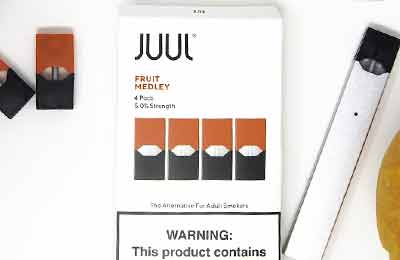
From August 2017 to August 2018, Juul sold over $1 billion in devices and pods, effectively capturing 76.1% of the electronic cigarette market. According to a survey conducted by Truth Initiative in 2018, teens between the ages of 15-17 were sixteen (16) times more likely to be Juul users than those between the ages of 25-34. Just how was Juul so successful in getting a brand new generation addicted to nicotine when smoking was already on a steep decline?
Juul Copied Big Tobacco’s Playbook
The strategies Big Tobacco companies employed is no secret to the public. Due to the Master Settlement Agreement (MSA), an accord between Attorney General’s for 46 states and four (4) cigarette manufacturers in 1998, the advertisements of old from Big Tobacco companies, as well as confidential memos and other advertising research, is available to be seen by the general public. Juul had complete access to this material like anyone else. Taking one look at older Juul advertising pictures, which included young adults in hip and fun environments, tells you that they were targeting new youth customers. Many comparison pictures between Big Tobacco advertisements and Juul’s look strikingly identical to one another.
Much like Big Tobaccos attempts, Juul sold its products in various flavors. Some of the more popular flavors included cool cucumber, strawberry milk, crème brulee and fruit medley. To a generation who saw traditional smoking as a harsh smelling relic from their parents’ generation, this exciting burst of flavors was very enticing. In recent times, these flavor choices have become the crux of the youth epidemic and a nationwide ban on flavored vape products that are pod-based has recently gone into effect. Months prior, some states have already put bans on flavored vape products to curve the epidemic.
Juul went further than Big Tobacco’s Playbook

In 1998, when Big Tobacco companies were heavily restricted in their forms of continued advertisement, the internet was in its infancy and social media was non-existent. Since the MSA never included non-combustible tobacco products, Juul had a loophole to advertise in an area not yet explored. Juul posted things on their Twitter account, such as when a popular celebrity was spotted with a Juul device. They advertised online about youth-friendly parties where they gave out starter kits and played movies that teenagers would be in to. They even contracted online promoters that the youth could identify with to push their product on their sites.
Juul Designed an E-Cigarette that would Appeal to the Youth
Just by its looks alone, you can tell why young people would be drawn to this e-cigarette. Generation Z, roughly between the ages of 7-22, grew up in an era where technology is cool. Juul’s device resembles that of a USB flash drive and is small enough to be hidden from teachers and parents or camouflaged as a flash drive. It can even be recharged by plugging it into your laptop or desktop, further emphasizing the techy look.
There is also an undocumented “party mode” feature to this device. Within party mode, the device cycles rapidly through different colored LED lights. To activate this mode, one needs to puff on the device until the LED light turns white and then wave the Juul device around quickly. This mode, with its vibrant flashy lights, is very popular with teen vapers.
Juul Falsely Advertised their Product was Safe
Many of the youth who were spoken to in recent times explain that they thought Juul was completely safe. They thought it was flavored water vapor and had no idea nicotine was in it. The question that must be asked is why would they think this? A major component of this confusion comes from Juul’s failure to adequately warn the public that this product contained nicotine. Until August of 2018, many of Juul’s promotional emails and other advertisements had absolutely no reference to this being a nicotine-based product. The FDA demanded that the warning label on the packaging also be enlarged as it did not meet standards. Even the word “vape” bring to mind harmless water vaper which is why teenagers think it is harmless.
To make matters worse, students have testified that Juul representatives have gone to schools to talk about their product under the guise of youth smoking prevention. Under oath, teens testified that the Juul representative said the product was “totally safe” and that they should refer their nicotine addicted friends to Juul as it is a safer alternative. Some even testified that the representatives said it would only be a matter of time before the FDA approved of Juul.
Contact an Experienced Juul E-Cigarette Lawyer Today!

Juul e-cigarettes have been called into question for their deceptive marketing practices and the harm they have caused to the youth of the nation. If you or a loved one have developed complications due to the use of Juul e-cigarettes, you need a lawyer who can fight for your rights and get you the compensation you deserve. We work with experienced Juul E-Cigarette Lawyers around the nation who are ready to hear your case. Call us toll-free at 1-800-992-6878 or fill out an online contact form for a free (no obligation) case evaluation.
Sources:
- https://truthinitiative.org/press/press-release/new-study-reveals-teens-16-times-more-likely-use-juul-older-age-groups
- https://www.cnn.com/2019/07/25/health/juul-reps-in-classroom-teen-testimony/index.html


